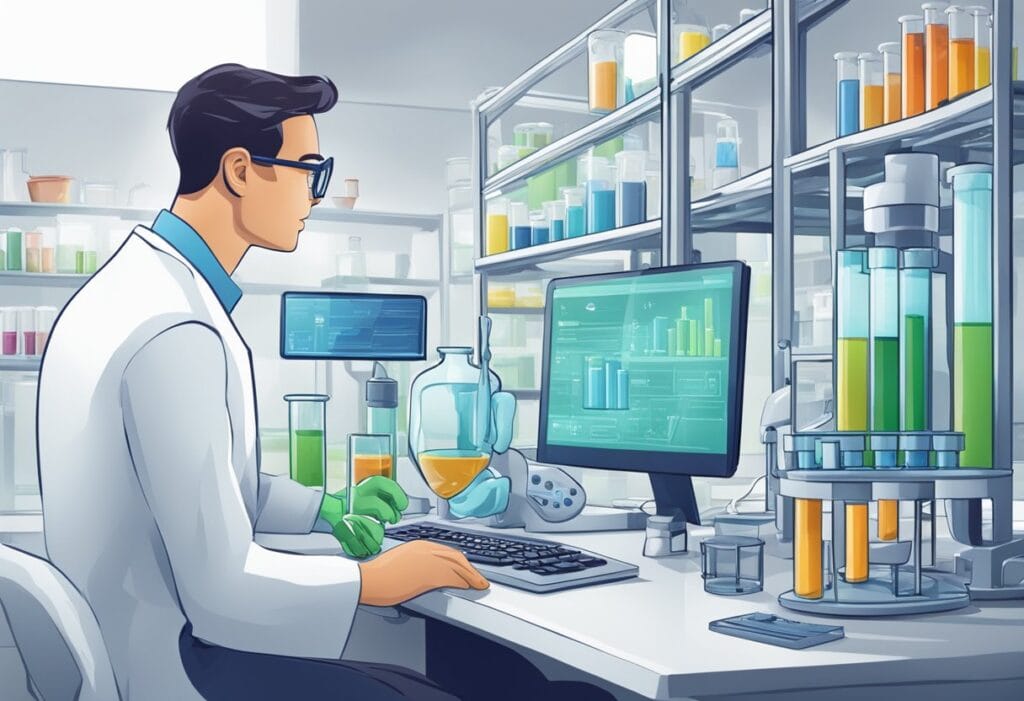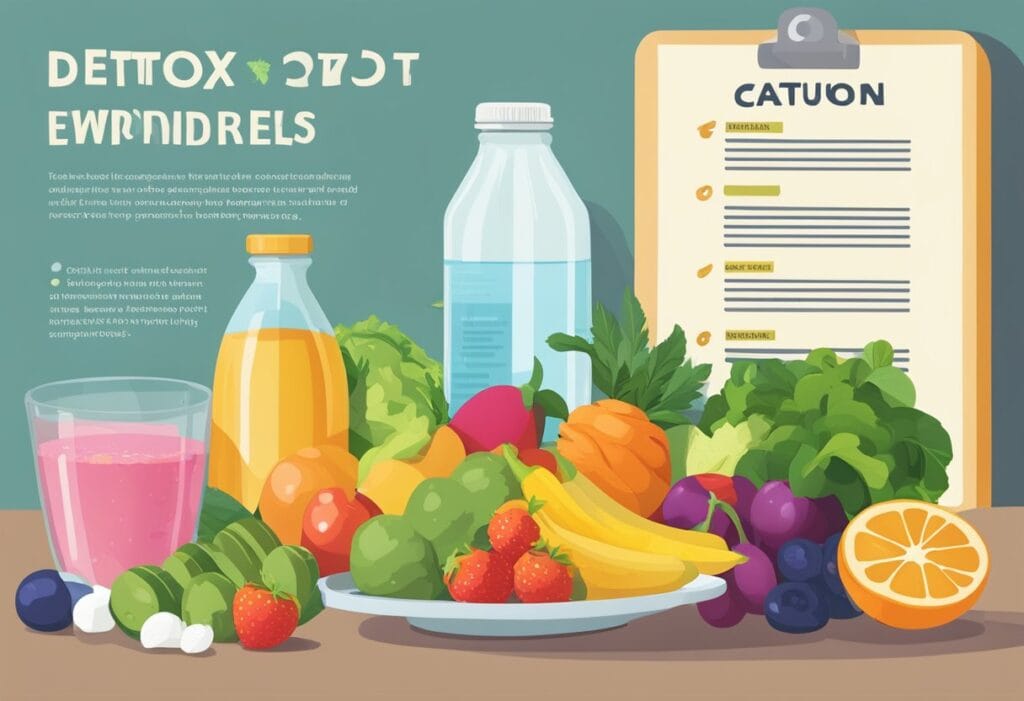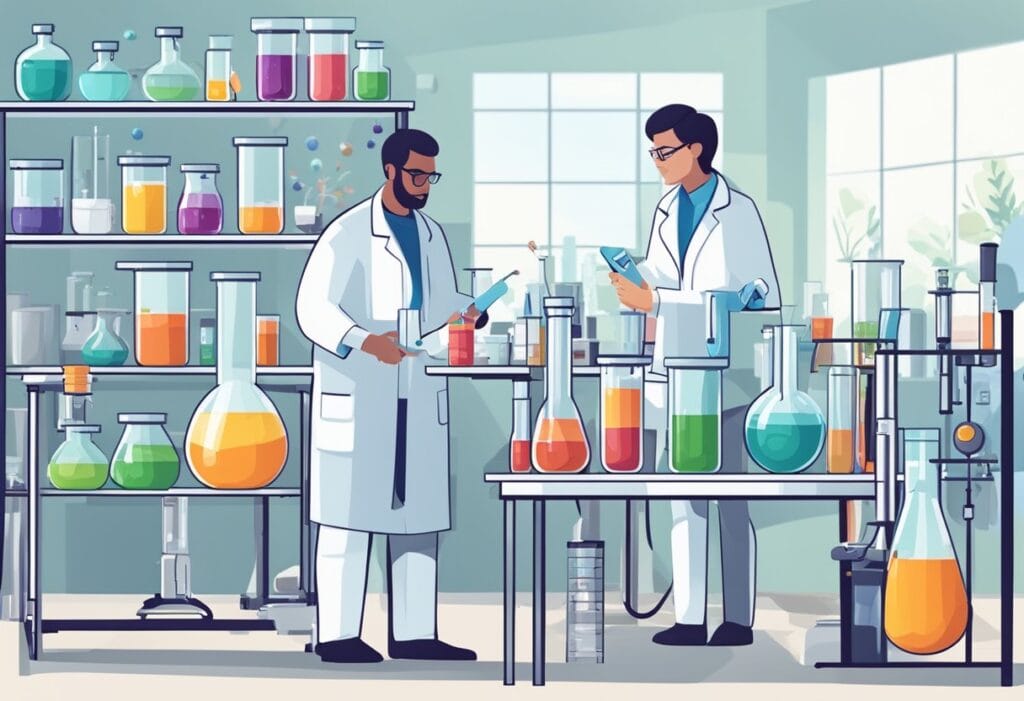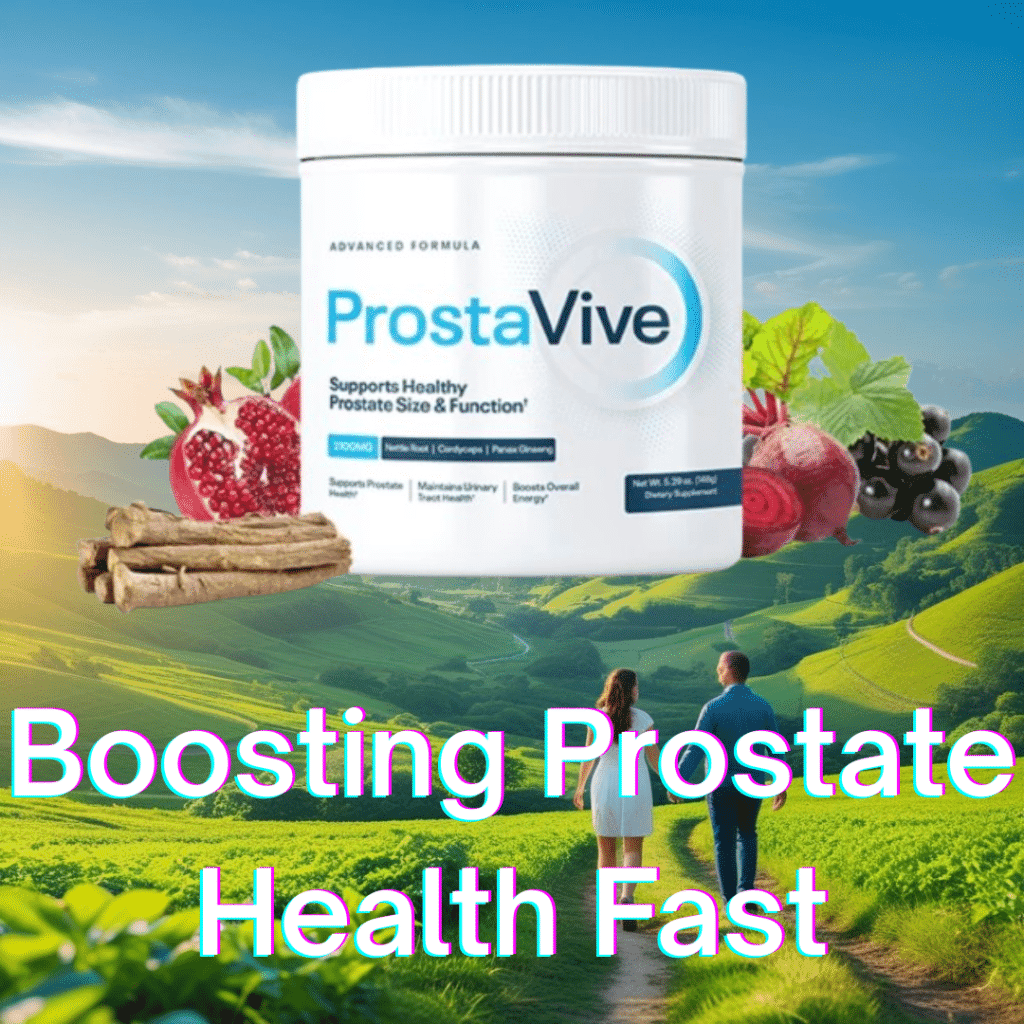Detox diets often promise a fast-track to health nirvana, but do they deliver the cleanse they claim, or is it all just pulp fiction? Welcome to “Debunking Detox Diets: The Science of Cleansing,” where we squeeze out the truth and see if these regimens are worth their salt—or should we say, their lemon juice and cayenne pepper.
In this blog post, we’ll filter through the hype, distill the facts, and serve up a refreshing blend of science-backed insights. So, grab your metaphorical strainer and let’s separate the health wheat from the detox chaff. Whether you’re a seasoned juicer or a skeptic with a raised eyebrow, prepare to have your curiosity quenched.

We’ve all heard about the latest detox diets that promise to cleanse our bodies of toxins and improve our health. These diets often involve strict regimens of juice cleanses, fasting, or eliminating certain foods. But do they really work? And are they safe? In this article, we’ll take a closer look at the science behind detoxification and evaluate some of the most popular detox diets on the market.
What is Detoxification?
Detoxification is the process by which our bodies eliminate toxins and other harmful substances. Our bodies have natural detoxification systems in place, such as the liver and kidneys, which filter out toxins and waste products. However, some proponents of detox diets argue that our bodies are overloaded with toxins from our environment and diet, and that we need to give our bodies a break by following a detox diet. In the next section, we’ll evaluate the scientific evidence on this claim.
Table of Contents
Key Takeaways
- Detox diets are not necessary for most people, as our bodies have natural detoxification systems in place.
- There is little scientific evidence to support the claims that detox diets eliminate toxins or improve health.
- Instead of following a detox diet, focus on eating a balanced diet rich in fruits, vegetables, whole grains, and lean protein, and staying hydrated to support your body’s natural detoxification systems.
Understanding Detoxification
Detoxification is the process of removing toxins from the body. It is a natural process that occurs in the liver and kidneys, which are the primary organs responsible for detoxifying the body.
The Body’s Natural Detox Systems
The liver is responsible for filtering toxins from the blood and converting them into less harmful substances that can be eliminated from the body. The kidneys filter waste products from the blood and excrete them in the urine. These natural detox systems work together to keep the body healthy and functioning properly.
Myths vs. Facts
There are many myths surrounding detox diets. One common myth is that detox diets can cure liver disease. However, there is no scientific evidence to support this claim. In fact, some detox diets can be harmful to people with liver disease.
Another myth is that detox diets can remove toxins from the body. While it is true that these diets may help eliminate some toxins, they do not eliminate all toxins from the body. The liver and kidneys are the primary organs responsible for removing toxins from the body, and they do so continuously, regardless of whether or not a person is on a detox diet.
In conclusion, detoxification is a natural process that occurs in the liver and kidneys. While detox diets may offer some benefits, they are not a cure-all for liver disease or a magic solution for removing toxins from the body. It is important to maintain a healthy diet and lifestyle to support the body’s natural detox systems.
Evaluating Popular Detox Diets
When it comes to detox diets, there are many popular options available. In this section, we will evaluate some of the most common detox diets and assess their scientific validity.
Juice Cleanses
Juice cleanses involve consuming only fruit and vegetable juices for several days or weeks. Proponents of juice cleanses claim that they can help to remove toxins from the body and improve overall health. However, there is little scientific evidence to support these claims. While consuming more fruits and vegetables is certainly beneficial for health, it is not necessary to consume them in juice form. In fact, consuming only juice can actually be harmful, as it can lead to nutrient deficiencies and spikes in blood sugar levels.
Commercial Detox Products
There are many commercial detox products available, including teas, supplements, and powders. These products often claim to help remove toxins from the body and promote weight loss. However, there is little scientific evidence to support these claims. Many of these products contain laxatives or diuretics, which can lead to dehydration and electrolyte imbalances. In addition, they may contain untested or potentially harmful ingredients.
Extreme Fasting and Cleanses
Some detox diets involve extreme fasting or cleansing practices, such as the Master Cleanse. This diet involves consuming only a mixture of lemon juice, maple syrup, and cayenne pepper for several days. While this diet may lead to rapid weight loss, it is not a sustainable or healthy way to lose weight. In addition, there is no scientific evidence to support the claim that it can remove toxins from the body.
Overall, the scientific evidence does not support the use of detox diets for removing toxins from the body or promoting weight loss. Instead, we recommend focusing on a balanced, nutrient-rich diet that includes plenty of fruits, vegetables, whole grains, and lean protein.
Potential Risks and Side Effects

Detox diets have become popular in recent years, with many people believing that they can help to cleanse the body of toxins and improve overall health. However, there are potential risks and side effects associated with these diets that should be considered before embarking on one.
Nutrient Deficiencies
One of the main concerns with detox diets is the potential for nutrient deficiencies. Many of these diets involve restricting certain foods or food groups, which can lead to a lack of essential vitamins and minerals. For example, juice cleanses often involve consuming only fruit and vegetable juices, which may not provide enough protein, fiber, and healthy fats. This can lead to fatigue, weakness, and other health problems.
Electrolyte Imbalance and Dehydration
Another risk of detox diets is the potential for electrolyte imbalances and dehydration. Many of these diets involve consuming large amounts of water, which can dilute the body’s electrolytes and lead to imbalances. This can cause muscle weakness, cramping, and even heart problems in severe cases. Additionally, some detox diets involve using laxatives or diuretics, which can lead to dehydration and electrolyte imbalances.
Impact on Mental and Physical Health
Finally, detox diets can have a significant impact on both mental and physical health. Restricting food intake can lead to feelings of stress, anxiety, and depression, which can negatively affect mental health. Additionally, these diets can be particularly dangerous for those with a history of eating disorders, as they can exacerbate disordered eating behaviors. Physically, detox diets can lead to fatigue, weakness, and other health problems, which can make it difficult to perform daily tasks and activities.
In conclusion, while detox diets may seem like a quick and easy way to improve health, they come with potential risks and side effects that should not be overlooked. It is important to speak with a healthcare professional before embarking on any new diet or exercise program to ensure that it is safe and appropriate for your individual needs.
Scientific Evidence on Detox Diets

Detox diets have become increasingly popular in recent years as a way to “cleanse” the body of toxins and promote weight loss. However, there is little scientific evidence to support the effectiveness of these diets. In fact, some studies have shown that detox diets can be harmful to your health.
Effectiveness of Detox Diets
There is no scientific evidence to support the claim that detox diets lead to long-term weight loss or improved health. While some people may experience short-term weight loss on a detox diet, this is often due to a decrease in calorie intake rather than any cleansing effect. Once the diet is over, most people will regain the weight they lost.
Furthermore, many detox diets are low in essential nutrients like protein, fiber, and vitamins, which can lead to deficiencies and other health problems. Some detox diets may also be high in sugar and other unhealthy ingredients, which can have negative effects on blood sugar levels and overall health.
Studies and Research Findings
Several studies have investigated the effectiveness of detox diets, with mixed results. A systematic review published in the Journal of Human Nutrition and Dietetics found that there is no evidence to support the use of detox diets for weight loss or toxin elimination. Another study published in the Journal of Alternative and Complementary Medicine found that a detox diet had no significant effect on liver function or toxin elimination.
In fact, some detox diets may even be harmful to your health. A study published in the Journal of Nutrition and Metabolism found that a juice cleanse led to a decrease in muscle mass and an increase in body fat in healthy adults. Another study published in the Journal of the Academy of Nutrition and Dietetics found that a detox diet led to an increase in oxidative stress, which can contribute to chronic diseases like cancer and heart disease.
In conclusion, while detox diets may seem like a quick fix for weight loss and improved health, there is little scientific evidence to support their effectiveness. In fact, some detox diets can be harmful to your health. It’s important to focus on a balanced, nutrient-dense diet and regular exercise for long-term health and weight loss.
Healthy Alternatives to Detox Diets

Detox diets have been popularized as a way to lose weight, eliminate toxins from the body, and improve overall health. However, as we have seen in the previous section, there is little scientific evidence to support these claims. Instead of relying on detox diets, we can adopt healthy alternatives that are backed by scientific research.
Balanced Diet and Regular Exercise
A balanced diet and regular exercise are key to maintaining a healthy body weight and promoting overall health. A healthy diet should include a variety of nutrient-dense foods such as fruits, vegetables, whole grains, lean proteins, and healthy fats. It is important to limit processed foods, added sugars, and saturated fats.
Regular physical activity is also important for maintaining a healthy weight and reducing the risk of chronic diseases such as heart disease, diabetes, and certain types of cancer. The Centers for Disease Control and Prevention (CDC) recommends at least 150 minutes of moderate-intensity aerobic exercise per week, along with muscle-strengthening activities at least two days per week.
Incorporating Detoxifying Foods
While there is no scientific evidence to support the use of detox diets, there are certain foods that can help support the body’s natural detoxification processes. These foods include:
- Cruciferous vegetables such as broccoli, cauliflower, and kale, which contain compounds that support liver function.
- Berries such as blueberries, raspberries, and strawberries, which are rich in antioxidants that help protect against cellular damage.
- Citrus fruits such as lemons, limes, and grapefruits, which contain compounds that support liver function and help flush toxins from the body.
- Whole grains such as brown rice, quinoa, and oats, which are rich in fiber that helps promote regular bowel movements and eliminate toxins from the body.
- Water, which helps flush toxins from the body and supports proper kidney function.
Incorporating these foods into a balanced diet can help support the body’s natural detoxification processes without the need for restrictive detox diets.
In summary, instead of relying on detox diets, we can adopt healthy alternatives such as a balanced diet and regular exercise, along with incorporating detoxifying foods into our diet. These alternatives are backed by scientific research and can help support the body’s natural detoxification processes without the need for restrictive and potentially harmful detox diets.










